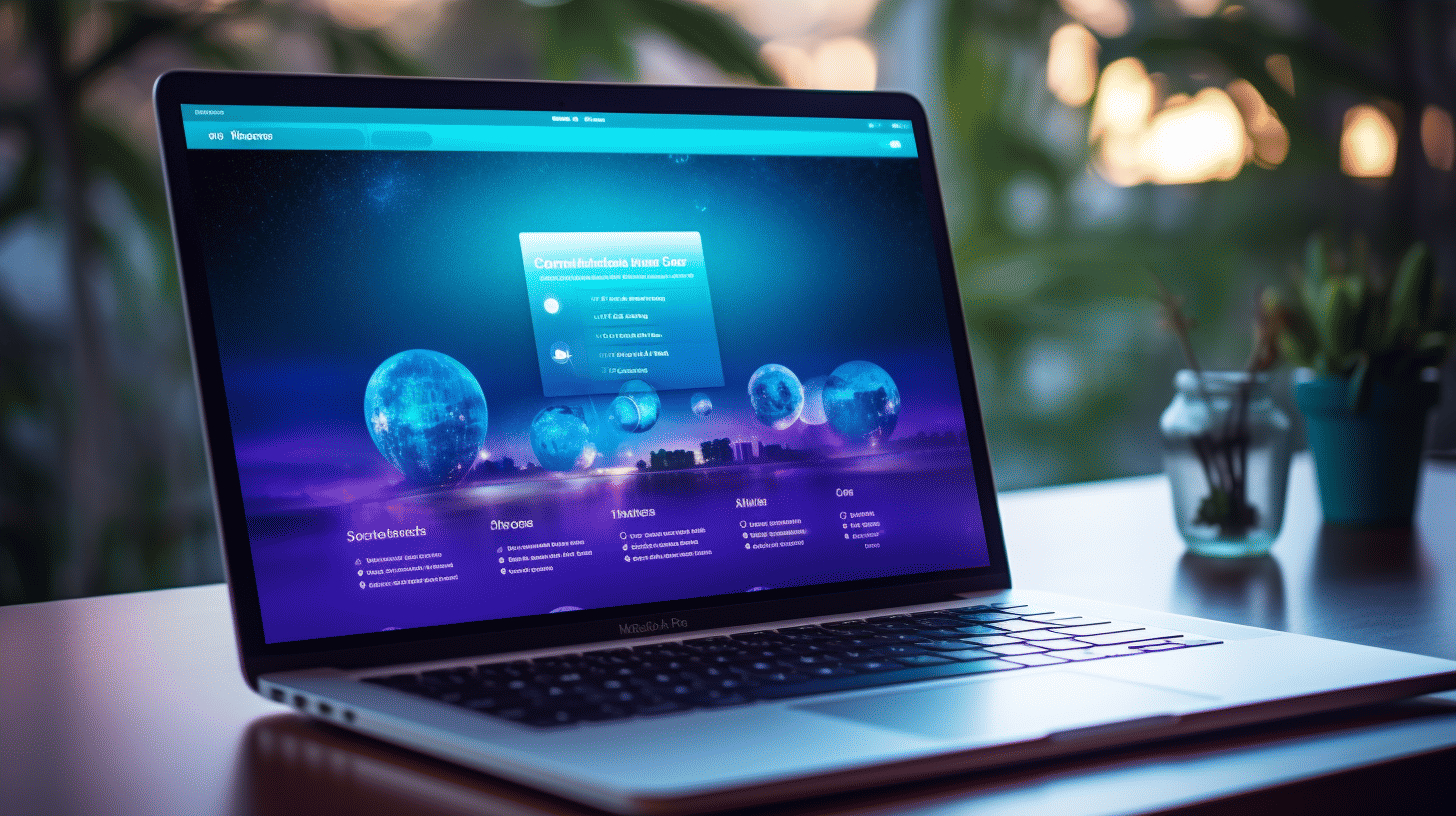在当今的数字环境中,拥有强大的在线影响力对于任何小型企业的成功都至关重要。WordPress 是最受欢迎的网站构建平台之一,这要归功于其用户友好的界面和大量插件和主题。然而,大受欢迎也带来了巨大的漏洞。WordPress 网站已成为黑客利用漏洞并获得未经授权访问的主要目标。
作为小企业主,保护您的 WordPress 网站免受潜在威胁至关重要,以确保您的在线状态的安全性和完整性。通过实施网站安全最佳实践,您可以最大限度地降低网络攻击的风险并保护您的企业免受潜在损害。
在本文中,我们将探讨 WordPress 网站中黑客攻击的普遍性、网络攻击的频率以及优先考虑网站安全的重要性。我们还将为您提供有价值的最佳实践,以加强 WordPress 网站的安全性。
因此,系好安全带,准备巩固你的在线堡垒,像专业人士一样保护你的 WordPress 网站!🛡️
WordPress:流行度与漏洞
凭借其用户友好的界面、广泛的自定义选项和强大的插件生态系统,WordPress 已成为无数个人和企业建立网站的首选平台。事实上,根据最近的一项研究[1],令人印象深刻的是,2023 年所有网站中有 45.8% 都由 WordPress 提供支持。
WordPress 的使用率不断上升
WordPress 的流行可以归因于以下几个因素:
- 易于使用: 即使没有编码经验的人也可以使用 WordPress 的直观界面快速创建功能齐全的网站。借助其拖放功能和可视化编辑器,创建网站变得比以往任何时候都更容易。
- 定制选项: WordPress 提供大量主题和插件,让用户可以根据自己的特定需求个性化网站。无论是添加联系表单、集成社交媒体信息流,还是优化网站以进行 SEO,几乎每个功能都有插件。
- 可扩展性: WordPress 具有高度可扩展性,适合企业和个人使用。随着网站的发展,您可以轻松添加新页面、博客文章,甚至扩展功能,而无需进行彻底改造。
- 社区支持: 作为最受欢迎的内容管理系统 (CMS) 之一,WordPress 拥有庞大而活跃的开发者、设计师和用户社区。这意味着,如果您遇到问题或需要帮助,您可以向庞大的在线社区寻求指导。
尽管 WordPress 用途广泛且具有诸多好处,但必须承认的是,它并非没有漏洞。
常见的 WordPress 漏洞
虽然 WordPress 本身会不断更新以解决安全问题,但附加插件和主题往往会让网站容易受到攻击。一些最常见的漏洞包括[1]:
- 过时的插件和主题: 许多已报告的漏洞源于使用过时的插件和主题版本。这些过时的元素可能存在未修补的漏洞,使黑客更容易利用它们。
- 弱密码: 简单且容易猜到的密码对任何网站来说都是一个重大的安全风险。弱密码使黑客更容易未经授权访问您的 WordPress 网站。
- 不安全的托管: 选择错误的网络托管服务提供商或选择不安全的托管环境可能会使您的网站面临各种安全风险。
值得注意的是,核心 WordPress 软件本身相对安全,报告的漏洞中只有 1.3% 归因于它[1]。尽管如此,实施最佳实践并采取必要措施来保护您的 WordPress 网站免受潜在威胁仍然至关重要。
在下一部分中,我们将探讨一些有效的策略来保护您的 WordPress 网站免受漏洞攻击。
敬请关注!
WordPress 网站黑客攻击的盛行
随着 WordPress 作为内容管理系统 (CMS) 的日益流行,黑客将目光瞄准这些网站也就不足为奇了。WordPress 网站遭受黑客攻击的普遍性是网站所有者、Web 开发人员和安全专家都十分担忧的问题。在本文中,我们将深入研究每日黑客统计数据以及过时网站对 WordPress 网站漏洞的影响。
每日黑客统计数据
每天,成千上万的网站都会遭受黑客攻击,WordPress 网站也不例外。以下是一些令人震惊的每日黑客统计数据:
- 每天约有 30,000 个网站遭到黑客攻击[1]。这一惊人的数字凸显了问题的严重性,也强调了强有力的安全措施的重要性。
- 过时的 WordPress 核心软件是黑客利用的常见漏洞。事实上,令人震惊的是,被黑客入侵的 WordPress 网站中有 39.3% 的核心软件已经过时[1]。此统计数据强调了及时了解最新的 WordPress 更新和补丁以降低黑客攻击风险的重要性。
- 过时的 WordPress 插件和主题也会使网站容易受到攻击。定期更新所有插件和主题以获得安全性增强和错误修复至关重要。
对过时网站的影响
运行过时的 WordPress 网站可能会带来严重后果。在一项针对内容管理系统 (CMS) 攻击的研究中,发现高达 56% 的攻击是由于 WordPress 版本过时造成的[1]运行旧版本的 WordPress 的后果可能包括:
- 安全威胁的脆弱性增加:黑客经常利用旧版本 WordPress 中已知的漏洞,从而让他们未经授权访问网站并窃取敏感数据。
- 网站停机和收入损失:网站被黑客入侵对访客和搜索引擎来说都是危险信号,它会导致网站严重停机和自然流量下降。这会直接影响网站的收入,尤其是对电子商务企业而言。
- 品牌声誉受损:网站被黑客入侵不仅会破坏受影响组织的信任和信誉,还会损害其品牌声誉。重建与客户和利益相关者的信任可能是一个漫长而艰巨的过程。
为了保护您的 WordPress 网站免受黑客攻击,必须优先考虑安全措施,例如保持核心软件、插件和主题的更新、实施强密码以及使用受信任的安全插件。定期备份和持续监控也是全面安全策略的重要组成部分。
请记住,在网站安全方面,主动出击总是比处理黑客事件的后果更好。通过保持警惕并采用最佳实践,您可以保护您的 WordPress 网站并保护其免受潜在的安全漏洞的侵害。
阅读有关恶意软件清除策略和保护 WordPress 网站安全的更多信息 管理 WP 勇敢面对黑客攻击网站带来的后果 页。
针对 WordPress 网站的网络攻击
WordPress 无疑是目前最流行的内容管理系统 (CMS) 之一。其用户友好的界面和大量插件使其成为许多希望建立网站的企业和个人的首选。然而,它的流行也使其成为网络攻击的主要目标。在本节中,我们将探讨对 WordPress 网站的攻击频率以及恶意软件攻击的具体威胁。
攻击频率
🔒 WordPress 网站每分钟受到近 90,000 次攻击。是的,你没看错——每分钟都有!数百万个网站由 WordPress 提供支持,网络犯罪分子将其视为利用漏洞并获得未经授权访问的有利可图的机会。
🔥 这些攻击并不是偶尔发生的孤立事件。它们是对全球 WordPress 网站的持续无情攻击。网站所有者需要意识到他们面临的持续威胁,并采取主动措施保护自己。
恶意软件攻击
🦠 WordPress 网站经常遭受的一种特定类型的网络攻击是恶意软件攻击。恶意软件是恶意软件的简称,是指旨在损害计算机系统或获得未经授权的访问的任何软件。恶意软件可以采取各种形式,例如病毒、蠕虫、勒索软件或间谍软件。
💥 仅在 2023 年 9 月,就有超过 17,000 个 WordPress 网站遭到臭名昭著的 Balada Injector 恶意软件的攻击。此事件凸显了问题的严重性以及采取强有力的安全措施来保护 WordPress 网站的必要性。
🔐 WordPress 网站遭受恶意软件攻击的后果可能非常严重。它可能导致数据泄露、网站损坏、用户信任丧失,甚至财务损失。因此,网站所有者必须优先考虑安全性,并采取主动措施来预防和减轻恶意软件攻击。
要了解有关 WordPress 网站的不同类型网络攻击以及保护网站的有效安全措施的更多信息,您可以参考 针对 WordPress 的网络攻击 页。
安全对于建立信任的重要性
建立信任对于任何企业来说都至关重要,尤其是在在线互动方面。在当今网络威胁猖獗的数字环境中,确保网站安全至关重要。安全的网站不仅可以保护您的企业和客户免受潜在攻击,还可以培养访客的信任感和可信度。
“不安全”警告的影响
想象一下这样的场景:访问者访问您的网站时,浏览器上只显示“不安全”的警告。研究表明,60% 的访问者可能会不信任显示此类警告的网站,这一数字令人震惊。这种不信任可能导致高跳出率和对您的品牌的负面看法。
网站安全作为信任指标
在网站上实施强大的安全措施会直接影响访客对您公司的看法。以下是安全网站如何成为信任指标:
- 数据保护: 安全的网站可以保护敏感的客户信息,例如姓名、地址和付款详细信息。通过投资足够的安全措施,您可以表明您重视客户的隐私并致力于保护他们的数据。
- 安全交易: 如果您的网站涉及电子商务或在线交易,那么拥有安全的支付网关和 SSL 证书至关重要。提供安全的金融交易平台可以让客户放心,因为他们知道他们的敏感信息不会被窥探。
- 可靠性和可用性: 安全性对于确保您的网站始终保持正常运行并可供访问者访问至关重要。安全的网站不太可能因恶意攻击而停机,为访问者提供无缝的浏览体验,并让您的业务值得信赖。
- 声誉管理: 在在线评论和社交媒体时代,安全漏洞会迅速损害您品牌的声誉。客户更有可能信任那些优先考虑网站安全的企业,这表明他们致力于保护他们的利益。
利用托管主机掌握网站安全
要充分利用安全网站的优势,与可靠的托管服务提供商合作至关重要。托管服务提供商提供一系列优势,包括主动安全措施、定期软件更新以及强大的备份和恢复系统。通过将您的网站委托给托管服务提供商,您可以专注于核心业务,同时确保您的在线业务获得最高级别的安全保障。
总之,安全不仅仅是网站管理的技术方面。它是与受众建立信任的关键要素。通过投资网站安全措施并与托管服务提供商合作,您可以保护您的业务、保护客户数据,并在数字领域树立自己值得信赖的品牌形象。
WordPress 网站安全的最佳做法
在当今的数字环境中,网站安全至关重要。一个需要特别注意安全性的流行内容管理系统是 WordPress。由于其拥有庞大的插件和主题生态系统,遵循最佳实践以确保 WordPress 网站的安全至关重要。WordPress 网站安全的两个重要方面是定期更新 WordPress、主题和插件,以及使用 Web 应用程序防火墙 (WAF) 来增加一层保护。
更新 WordPress、主题和插件
定期更新对于维护 WordPress 网站的安全性和功能至关重要。通过保持 WordPress 安装、主题和插件为最新,您可以保护网站免受黑客可能利用的潜在漏洞的攻击。
以下是更新 WordPress、主题和插件时需要考虑的一些关键点:
- WordPress 核心更新:密切关注最新的 WordPress 更新,确保您的网站始终运行最新版本。WordPress 发布这些更新是为了解决安全漏洞、修复错误并引入新功能。
- 主题和插件更新:始终在主题和插件发布后立即将其更新到最新版本。开发人员经常发布更新来解决安全问题、提高性能并添加新功能。在 WordPress 仪表板中搜索更新通知或启用自动更新以增加便利性。
- 删除未使用的主题和插件:在您的网站上保留未使用的主题和插件会增加安全漏洞的可能性。定期检查您安装的主题和插件,并删除不再使用的主题和插件。
请记住,通过及时更新您的 WordPress 核心、主题和插件,您正在积极采取措施保护您的网站免受潜在的安全威胁。
Web 应用程序防火墙的作用
除了定期更新外,使用 Web 应用程序防火墙 (WAF) 可以作为您抵御已知网络攻击的第一道防线。WAF 可充当您的网站与潜在威胁之间的保护屏障,过滤掉恶意流量并防止未经授权的访问。
以下是 Web 应用程序防火墙增强 WordPress 网站安全性的几种方法:
- 阻止恶意流量:WAF 会分析您网站的传入流量并阻止可疑请求和已知恶意 IP。这有助于防止黑客利用漏洞并发起攻击。
- 防范 DDoS 攻击:DDoS(分布式拒绝服务)攻击会通过向您的网站注入大量流量来破坏您的网站。Web 应用程序防火墙可以检测并缓解这些攻击,确保您的网站即使在高流量负载下也能保持可访问性。
- 监控和报告:WAF 提供实时监控和潜在安全威胁警报。它还会生成有关流量模式和攻击企图的详细报告,让您采取主动措施来加强网站的安全性。
通过实施 Web 应用程序防火墙,您可以为 WordPress 网站添加额外的保护层,保护其免受恶意行为者的攻击,同时确保无缝的用户体验。
请记住,确保 WordPress 网站安全的关键在于定期更新和利用 Web 应用程序防火墙。通过遵循这些最佳实践,您将采取主动措施来保护您的网站并保护其免受潜在威胁。
🔒 及时了解最新的 WordPress、主题和插件更新,确保您的 WordPress 网站的安全。详细了解 Web 应用程序防火墙在保护您的网站免受网络攻击方面的重要性。 Web 防火墙的作用 🔒
结论
总之,保护您的 WordPress 网站应该是小企业主的首要任务。随着 WordPress 的日益普及和黑客攻击的盛行,采取主动措施保护您的网站并保护您的企业的数字形象至关重要。通过及时了解最新的 WordPress、主题和插件更新,并利用 Web 应用程序防火墙的强大功能,您可以显著降低网络攻击的风险并确保您的网站安全。
请记住,安全的网站可以赢得访客和客户的信任,而这种信任对于企业的成功至关重要。因此,不要忽视实施 WordPress 网站安全最佳实践的重要性。
如果您正在寻找可靠而全面的解决方案来管理 WordPress 网站的安全性,请考虑使用 Managed-WP™。Managed-WP 是一个高级托管 WordPress 云托管平台,它不仅简化了您网站的基础设施,还提供专家全天候解决问题支持。借助 Managed-WP,您可以自由地专注于您的数字体验,而将安全问题留给专家。
使用 Managed-WP™ 保护您的 WordPress 网站并确保安心。 在这里查看他们的平台 并将您的网站安全提升到新的水平。
常见问题
- 为什么小企业主保护他们的 WordPress 网站很重要?
小型企业主需要保护他们的 WordPress 网站,以保护敏感的客户数据、防止未经授权的访问、维护网站功能并维护他们的在线声誉。
- 保护 WordPress 网站的最佳做法有哪些?
保护 WordPress 网站的一些最佳实践包括保持软件和插件更新、使用强大而独特的密码、启用双因素身份验证、实施可靠的安全插件、定期备份网站以及监控可疑活动。
- 推荐使用哪些 WordPress 网站安全插件?
一些推荐的 WordPress 网站安全插件包括 Wordfence Security、Sucuri Security、iThemes Security 和 All In One WP Security & Firewall。这些插件有助于增强网站安全性,并提供防火墙保护、恶意软件扫描和登录保护等功能。
- 我应该多久备份一次我的 WordPress 网站?
建议定期备份您的 WordPress 网站,最好是每天或每周备份一次。这可确保您拥有网站数据的最新副本,以防出现任何安全漏洞、软件更新出错或意外数据丢失。
- 如果我的 WordPress 网站被黑客入侵,我该怎么办?
如果您的 WordPress 网站遭到黑客攻击,迅速采取行动非常重要。断开网站与互联网的连接,更改所有密码,扫描网站中的恶意软件,恢复干净的备份,更新所有软件和插件,并加强安全措施以防止将来受到攻击。



















